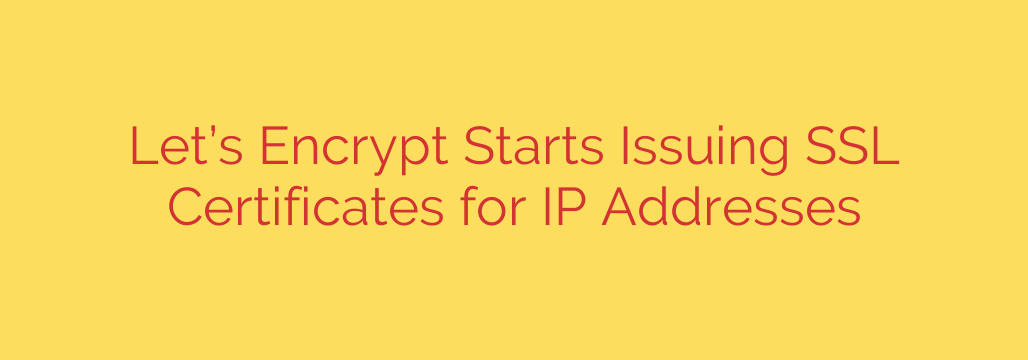
A significant advancement in securing online connections has arrived, making it easier than ever to ensure encryption for direct IP-based communication. Previously, obtaining an SSL/TLS certificate typically required owning and validating a domain name. However, a leading certificate authority has now expanded its offerings to issue free, automated certificates directly for IP addresses.
This development is particularly impactful because it provides a widely accessible method to establish secure connections to services or devices that are identified solely by their public IP address. This removes the barrier of needing a corresponding domain name, which might not always be practical or necessary for certain applications or internal network structures accessible externally.
The process involves validating ownership or control of the specific public IP address for which the certificate is requested. Once validated, a trusted certificate can be issued, allowing users to connect securely using protocols like HTTPS, FTPS, or others, directly to the IP address without encountering browser warnings about insecure connections that often occur with self-signed certificates.
This capability opens up new possibilities for securing a variety of use cases. These could include securing API endpoints accessible via IP, managing network devices remotely, providing encrypted access to services on unusual ports, or securing internal testing environments without the need for a dedicated domain. It democratizes IP address encryption, bringing the benefits of trusted SSL/TLS to scenarios where it was previously difficult or costly to implement.
It’s important to note that this functionality is designed for public IP addresses and does not extend to private or internal network IP ranges as defined by RFC1918. The validation methods ensure that only the legitimate controller of a public IP can obtain a certificate for it, maintaining security and trust. This new service represents a crucial step forward in promoting widespread encryption across the internet, covering connections that fall outside the traditional domain-centric model.








